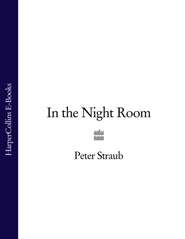По всем вопросам обращайтесь на: info@litportal.ru
(©) 2003-2024.
✖
Magic Terror
Настройки чтения
Размер шрифта
Высота строк
Поля
‘I wish I had that swing in my backyard,’ he said.
‘Quoi?’
In French,-he said, ‘A stupid thing we used to say when I was a kid. Thank you for making that sandwich and bringing it to my room.’ Ten feet away in the brisk air, N caught rank, successive waves of the odor flowing from her and wondered how the other women tolerated it.
‘Nadine said you thanked me.’
‘I wanted to do it in person. It is important, don’t you agree, to do things in person?’
‘I suppose important things should be done in person.’
‘You were thoughtful to notice that I was not here for dinner.’
Her shrug shifted her body within the tight confines of the dress. ‘It is just good sense. Our guests should not go hungry. A big man like you has a large appetite.’
‘Can you imagine, I will be out late tonight, too?’
Her mouth curled in a smile. ‘Does that mean you’d like another sandwich?’
‘I’d love one.’ For the sake of pleasures to come, he took two more steps into her stench and lowered his voice. ‘We could split it. And you could bring a bottle of wine. I’ll have something to celebrate.’
She glanced at his satchel. ‘You finished what you are writing?’
She had questioned her boss about him.
‘It’ll be finished by tonight.’
‘I never met a writer before. It must be an interesting way of life. Romantic.’
‘You have no idea,’ he said. ‘Let me tell you something. Last year I was writing a piece in Bora Bora, and I talked to a young woman a bit like you, beautiful dark hair and eyes. Before she came to my room, she must have bathed in something special, because she smelled like moonlight and flowers. She looked like a queen.’
‘I can look more like a queen than anyone in Bora Bora.’
‘I wouldn’t be surprised.’
She lowered her eyes and swayed back into the kitchen.
After parking in a side street off the Place du Marche, N strolled through shops, leafed through Kim and sipped menthe à l’eau at cafés, watched pedestrians and traffic move through the ancient town. In a shop called Basque Espadrilles he saw the Japanese from the auberge swapping their golf caps for yellow and green berets that made them look like characters in a comic film. They paid no attention to his smile. Caucasians all looked alike. Passing the extensive terrace of what seemed to be the best restaurant in town, he observed elegant M. Daniel Hubert and adventurous Martine in intense discussion over espresso. M. Hubert’s black silk suit and black silk T-shirt handsomely set off his silver hair, and Martine’s loose white sweater, short tan skirt, and oversized glasses made her look as if she had come from delivering a lecture. Here the reason for his observation was no mystery, but how might it be interpreted? N backed away from the terrace, entered the restaurant by its front door, and came outside behind them. He drank mineral water at a distant table and let their gestures, their moves and countermoves, sink into him. After a sober consideration of his position in the food chain, M. Hubert was getting cold feet. Smiling, intelligent, professorial, above all desirable Martine was keeping him in the game. What can we conclude, knowing what we know? We can, we must conclude that the object of N’s assigned task was not poor M. Hubert himself but the effect the task would have upon his buyers. N pressed button A, alarmingly closing a particular door. Another door opened. All parties profited, not counting the winkled buyers and not counting N, who no longer counted. A series of mechanical operations guided money down a specific chute into a specific pocket, that was all. It was never anything else. Not even now.
N trailed along as they walked back to M. Hubert’s building, and his wandering gaze sought the other, the hidden player, he whose existence was likely as unknown to Martine as it had been to his own naive younger self. Hubert had settled down under Martine’s reassurances. Apparently pausing in admiration of some particularly impressive window embrasures, N watched him unlock his great carved door and knew that the little devil was going to go through with it. Would a lifetime’s caution have defeated ambition had his ‘consultant’ been unattractive? Almost certainly, N thought. Hubert had not come so far by ignoring his own warning signals. They knew what they were doing; Hubert would not permit himself to exhibit weakness before a woman he hoped to bed. But N’s employers had their own essential vulnerability. They trusted their ability to predict behavior.
In the guise of a well-dressed tourist absorbed by sixteenth-century masonry, N drifted backward through the arches and found lurking within the café tabac the proof of his evolving theory.
Standing or rather slumping at the back of the bar, the feral-looking boy with messy shoulder-length blond hair was tracking him through the open door. His motorcycle canted into the shadow of a pillar. As one returning to himself after rapt concentration, N looked aimlessly into the square or across it. The boy snapped forward and gulped beer. With a cheering surge of the old pleasure, N thrust his hands into his jacket pockets and walked into the square, waited for cars to pass, and began to amble back the way he had come. The boy put down his beer and moved to the front of the café. N reached the bottom of the square and turned around with his head raised and his hands in his pockets. The boy struck an abstracted pose between the pillars.
If his job had been to instruct the boy in their craft, he would have told him: Never close off an option until the last moment. Roll the bike, dummy, until I tell you what to do. The kid thought making up your mind was something you did minute by minute, a typical hoodlum notion. N strolled away, and the boy decided to follow him on foot. A sort of cunning nervous bravado spoke in his slow step forward. All he needed was a target painted on his chest. Enjoying himself, N sauntered along through the streets, distributing appreciative touristy glances at buildings beautiful and mundane alike, and returned to the restaurant where Martine had coaxed M. Hubert back into the game. He pretended to scan the menu in its glass case. Two shops away, the boy spun to face a rack of scenic postcards. His sagging, scruffy leather jacket was too loose to betray his weapon, but it was probably jammed into his belt, another thuggish affectation. N strolled onto the terrace and took a table in the last row.
The boy sidled into view, caught sight of him, sidled away. N opened his satchel, withdrew his novel, and nodded at a waiter. The waiter executed a graceful dip and produced a menu. The boy reappeared across the street and slouched into a café to take a window seat. That wouldn’t have been so bad, if everything else had not been so awful. N spread the wings of the menu and deliberately read all the listings. Can’t you see? I’m telling you what to do. You have time to go back for your motorcycle, in case you’ll need it when I leave. The boy plopped his chin on his palm. N ordered mushroom soup, lamb chops, a glass of red burgundy, a bottle of Badoit gazeuse. He opened his book. Plucky Kimball O’Hara, known as Kim, presently in the Himalayas, was soon to snatch secret papers from a couple of Russian spies. The boy raked his hair with his fingers, stood up, sat down. A bowl of mushroom soup swirled with cream sent up a delicious, earthy odor. The boy finally slouched off up the sidewalk. N returned to Kim, the Russians, and the wonderful soup.
He had begun on the lamb chops when he heard the motorcycle approach the terrace, blot out all other sounds, and cut out. N took a swallow of wine. Across the street and just visible past the front of the restaurant, the boy was dismounting. He shook out his hair and knelt beside his machine, an old Kawasaki with fat panniers hanging from the saddle. After a sketchy pretense of fussing with the engine for a couple of minutes, he wandered away. N cut open a chop to expose sweet, tender meat precisely the right shade of pink.
When he had paid for his lunch, he made certain the boy was out of sight and ducked into the restaurant. The men’s room was a cubicle in a passageway alongside the kitchen. He locked the door, relieved himself, washed and dried his hands and face, and sat down on the lid of the toilet. Five minutes went by while he ignored the rattle of the handle and knocks on the door. He let another two minutes pass, and then opened the door. The frowning man outside thrust past him and closed the door with a thump. N turned away from the dining room and continued down the passage to a service door, which let him out into a narrow brick alley. A vent pumped out heat above overflowing garbage bins. N moved toward the top of the alley, where a motorcycle revved and revved like a frustrated beast. The boy was supposed to carry out his instructions at night, either in the mountains or on the little roads back to Montory, but after having seen N, he was in a panic at losing him. The sound of the motorcycle descended into a low, sustained rumble and grew louder. N faded backward. Maybe the kid would want to see if the restaurant had a back door – that wouldn’t be so stupid.
N ducked behind the garbage bins and peered over the refuse as the walls amplified the rumble. The boy stopped short with his front wheel turned into the alley. The bike sputtered, coughed, died. ‘Merde.’ The boy looked into the alley and repeated himself with a more drastic inflection. What he had figured out meant merde for breakfast, lunch, and dinner, as far as he was concerned. N waited to see what he would do next, plod to the nearest approved telephone to report failure or come down the alley in search of whatever scraps he might salvage from the ruin.
The kid pushed his bike into the alley and mooched along for a dozen feet. Muttering to himself, he propped the bike against a wall. N braced his legs and reached into the satchel. He closed his hand around the grip of the nine-millimeter pistol, fitted with his silencer of choice, and thumbed the safety up and the hammer down. The kid’s footsteps slopped toward him from maybe twenty feet away. The boy was uttering soft, mindless obscenities. The sullen footsteps came to within something like ten feet from the far end of the garbage bins. N drew out the pistol, tightened the muscles in his legs, and jumped up, already raising his arm. The kid uttered a high-pitched squeal. His blunt face went white and rubbery with shock. N carried the gesture through until his arm extended straight before him. He pulled the trigger. A hole that looked too small to represent real damage appeared between the kid’s eyebrows at the moment of the soft, flat explosion. The force of the bullet pushed the kid backward and then slammed him to the ground. The casing pinged off brick and struck concrete. A dark spray of liquid and other matter slid down the face of the wall.
N shoved the pistol back into the satchel and picked up the cartridge case. He bent over the body, yanked the wallet out of his jeans and patted for weapons, but found only the outline of a knife in a zippered pocket. He moved up to the Kawasaki, unhooked the panniers on their strap, and carried them with him out of the alley into an afternoon that seemed sharp-edged and charged with silvery electricity.
A tide of black-haired priests with boys’ faces washed toward him from five or six feet away, their soutanes swinging above their feet. One of them caught his mood and smiled at him with teeth brilliantly white. He grinned back at the priest and stepped aside. A red awning blazed like a sacred fire. Moving past, the boy priests filled the sidewalk, speaking machine-gun South American Spanish in Ecuadorean accents. Another noticed N and he, too, flashed a brilliant smile. It was the Lord’s day. The priest’s sculpted coif sliced through the glittering air. N nodded briskly, still grinning, and wheeled away.
By the time he got back to the Peugeot, his forehead was filmed with sweat. He unlocked the car, tossed the panniers inside, climbed in, and placed the satchel next to his right leg. He wiped his forehead with his handkerchief and fished the boy’s wallet from his jacket pocket. It was made of red leather stamped with the Cartier logo. Three hundred francs, about sixty dollars. A driver’s license in the name of Marc-Antoine Labouret, with an address in Bayonne. A prepaid telephone card. A membership card from a video rental store. The business card of a Bayonne lawyer. A folded sheet of notepaper filled with handwritten telephone numbers, none familiar. A credit card made out to François J. Pelletier. Another credit card made out to Rémy Grosselin. Drivers’ licenses in the names of François J. Pelletier and Rémy Grosselin of Toulouse and Bordeaux, respectively, each displaying the image of a recently deceased young criminal. The forgeries were what N thought of as ‘friend of a friend’ work, subtly misaligned and bearing faint, pale scars of erasure. He withdrew the money, put the wallet on the dash, and pulled the panniers toward him.
The first held only rammed-in jeans, shirts, underwear, socks, a couple of sweaters, and everything was crushed and wrinkled, filthy, permeated with a sour, poverty-stricken smell. Disgusted, N opened the second pannier and saw glinting snaps and the dull shine of expensive leather. He extracted an alligator handbag. It was empty. The next bag, also empty, was a black Prada. He took four more women’s handbags from the pannier, each slightly worn but serviceable, all empty. Fitting them back into the pannier, N could see the kid roaring alongside his victims, ripping the bags from their shoulders, gunning away. He had stripped the money and valuables, junked everything else, and saved the best to peddle to some other rodent.
Either N’s employers were getting desperate, or he had misidentified a would-be mugger as his appointed assassin. The latter seemed a lot more like reality. Irritated, concerned, and amused all at once, he went over the past twenty-four hours. Apart from the boy, the only people he had seen more than once were Japanese tourists who went out for walks in the rain and bought garish berets. His contact had said something about Japanese labor, but that meant nothing. A siren blared behind him. Immediately, another screamed in from his left. He shoved the Cartier wallet into one of the panniers and wound back through the one-way streets.
A boom and clatter of bells louder than sirens celebrated the conclusion of another mass. The traffic slowed to pedestrian speed as it moved past the restaurant, where uniformed policemen questioned the remaining diners on the terrace. Two others, smart in their tunics and Sam Browne belts, blocked the entrance of the alley. The traffic picked up again, and soon he was breezing down the wide, straight road toward Montory.
At Alos, an abrupt turn took him over an empty bridge. Halfway across, he halted, trotted around the front of the car, opened the passenger door, and in one continuous motion reached inside, thrust his hip against the railing, and sent the panniers whirling out over the swift little Saison River.
The contact took twenty minutes to call him back.
‘So we had a little hang-up, did we?’ N asked, quoting his words back to him.
‘I’m not in the usual place. It’s Sunday afternoon, remember? They had to find me. What’s going down? You weren’t supposed to call in until tonight.’
‘I’m curious about something,’ N said. ‘In fact, I’m a pretty curious guy, all in all. Humor me. Where did they find you? A golf course? Is it like being a doctor, you carry a beeper?’
There was a short silence. ‘Whatever you’re unhappy about, we can work it out.’ Another brief silence. ‘I know Martine came as a nasty surprise. Honestly, I don’t blame you for being pissed. You need her like a hole in the head. Okay, here’s the deal. No reports, no paperwork, not even the firearms statements. You just walk away and get that big, big check. She handles all the rest. Are you smiling? Do I see a twinkle in your eye?’
‘You were at your health club, maybe?’ N asked. ‘Did you have to leave a really tense racquetball match just for me?’
The contact sighed. ‘I’m at home. In the old wigwam. Actually, out in back, setting up a new rabbit hutch for my daughter. For her rabbit, I mean.’
‘You don’t live in Paris.’
‘I happen to live in Fontainebleau.’
‘And you have a beeper.’
‘Doesn’t everyone?’
‘What’s the rabbit’s name?’
‘Oh, dear,’ the contact said. ‘Is this how we’re going to act? All right. The rabbit’s name is Custer. Family joke.’
‘You mean you’re a real Indian?’ N asked, and laughed out loud in surprise. ‘An honest-to-God Red Man?’ His former image of his contact as a geek in thick glasses metamorphosed into a figure with high cheekbones, bronze skin, and straight, shoulder-length black hair.









